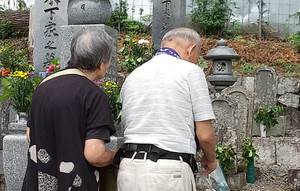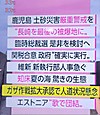俳句 365 haiku (239) 《処暑2 Kunpūshi》
新記録処暑後の猛暑いつ終わる?
(shinkiroku shoshogo-no-mōsho itsuowaru)
(薫風士)
a new record:
fierce heat after Shosho;
when will it end?
(Lovee)
(Note)
The word “Shosho” means one of the 24 divisions of the four seasons(around August 23), at which the summer heat is expected to ease up.
These pictures show some partial portions of NHK-TV scenes which Kunpūshi saw on August 29 & 30, 2025.
Click or tap here to see the latest article of “俳句 365 haiku”.



































